The History of The Society Created by Rasullullah (S.A.W)
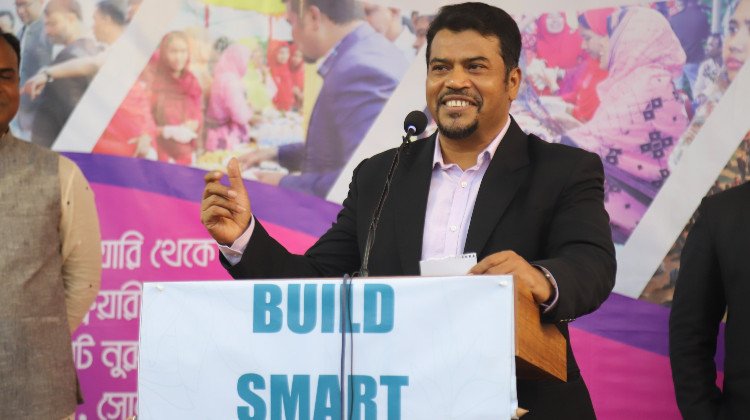
Those who have studied Islamic history know well that the Prophet Muhammad (peace be upon him) was a warrior Prophet who led 78 battles within just 10 years. Through these battles, he conquered an area of 1.25 million square miles on the Arabian Peninsula. The nation he built was also a fierce warrior nation—one that simultaneously attacked the then-superpowers, the Roman Empire and the Persian Empire, and crushed them like cotton.
Within just 60 to 70 years, they had conquered nearly half the known world.
When members of that nation were asked, "What do you desire?" they would respond, “A little food to satisfy our hunger and a piece of cloth to cover our shame—beyond that, we want nothing. We are alive only to fight in the path of Allah.”
But the question remains—why?
Why did the Messenger (S.A.W) create such a formidable military nation?
Why do hundreds of verses in the Holy Qur’an deal with warfare?
Why do large portions of the Hadith collections focus on war?
Why do the pages of the Prophet’s biography (Seerah) brim with detailed accounts of battles?
Why all this war?
In today’s article, we will briefly attempt to answer this vital question: why did the Messenger (S.A.W) create a military nation?
Today, the form of Islam that is prevalent in our society—whether practiced in mosques, madrasas, shrines, or religious gatherings—produces roughly three categories of people:
1. Muftis and Maulanas through the madrasas
2. Devotees (murids) of spiritual leaders through the shrines and tombs
3. Millions of voters through Islamic political parties
However, if we look at the history of the Prophet's (peace be upon him) Islam, we’ll find that none of these categories existed. There were no muftis or maulanas, no murids of pirs, and not even Islamic party voters. The only type of people produced by that Islam were warriors—soldiers.
Read the history of the Sahabah (Companions of the Prophet). You will see that the lives of the Prophet and his Companions were spent on the battlefield. Men and women, the young and the old—even children—would rush to join the Prophet in battle. In short, the entire Ummah functioned as a powerful army.
So, the question is: what was the purpose of this army?
What was the purpose of the Prophet’s (peace be upon him) army?
Those who are enemies of Islam—those who dislike everything about it—claim that the Messenger (S.A.W) built this formidable army for the purpose of foreign conquest and looting others' wealth. (May Allah protect us from such claims.)
However, history tells a very different story.
If the Messenger (S.A.W) had indeed formed this military nation merely to plunder wealth, then by the time of his passing, he should have left behind a grand palace filled with vast treasures.
But in reality, after his death, what was found in his humble little hut?
• A simple mat
• A pillow filled with date palm fibers
• A few water bags
• 9 swords
• 5 spears
• 1 quiver
• 6 bows
• 7 iron armors
• 3 battle robes
• 1 belt
• 1 shield
• 3 flags
(Source: Seerat-un-Nabi by Maulana Shibli Nomani)
From this, it is evident that his struggle was not for material wealth or worldly gain.
Now take a look at the wealth (or lack thereof) of Ali (RA), the son-in-law of the Messenger (S.A.W) and one of his prominent Companions.
When he proposed to marry the Prophet’s daughter, the Messenger (S.A.W) asked him, “O Ali, what do you have? There will be some expenses for the marriage.”
Ali (RA) replied, “O Messenger of Allah, I don’t have much. All I possess is a horse, a sword, and a suit of iron armor.”
The Messenger of Allah then told Ali (RA) to sell the armor to pay for the marriage expenses—but he did not ask him to sell the sword, because without a sword, Ali (RA) would not be able to fight in battles, whereas it was still possible to fight without armor.
Readers, pay attention—who was Ali (RA)? He was one of the main commanders of the Prophet’s (peace be upon him) army. If this was the state of his personal belongings, then one can easily imagine the condition of others.
This shows that not only the Messenger (S.A.W), but his companions also had no worldly possessions—only war equipment.
Dear reader! What kind of battle is this?
They are fighting battle after battle, conquering hundreds of thousands of square miles, governing territories—but they are not looting wealth, nor are they pursuing imperialistic objectives like others.
Then what was the goal for which they risked their lives on the battlefield?
They had one and only one goal: to establish the true religion of Allah across the world. And this goal was not set by anyone else—it was set by Allah, the Lord of the Worlds, Himself.
In three verses of the Holy Qur’an—Surah Tawbah (9:33), Surah Al-Fath (48:28), and Surah As-Saff (61:9)—Allah repeats the same message:
"He it is Who has sent His Messenger with guidance and the religion of truth to make it prevail over all other systems, even though the disbelievers hate it."
Dear reader, this verse is one of the most important in the Qur’an because here Allah has clearly defined the mission of His Messenger:
To defeat all other systems of life across the world and to establish the system or religion (Deen) prescribed by Allah.
And what will happen if this Deen is established?
• All corruption and mischief will be eradicated from the earth.
• The oppression of the weak by the strong will end.
• The exploitation of the poor by the rich will stop.
• The tyranny of rulers over the ruled will cease.
• The deceit of the cunning over the innocent will be eliminated.
Just imagine for a moment. All of humanity across the world has united. All forms of injustice and oppression have been eradicated. Under the leadership of a single leader, the entire human race is being governed according to Allah’s commands and is living in peace. Even imagining such a scenario seems so difficult, doesn’t it?
Yet what you find difficult to even imagine—that was exactly the mission assigned to the Messenger of Allah (peace be upon him). The Messenger of Allah was well aware that this mission was revolutionary in nature. To eliminate all injustice and oppression from the world by establishing Allah’s system of life, one must gain control over global state power. And no one willingly gives up power—nor ever will. It must be fought for, with one’s life and wealth.
That is why the Messenger of Allah needed a fierce and formidable military nation—one in which the women would be warriors, and the men would be warriors. A people who would fear no death, and who would consider sacrificing their lives in battle as the ultimate success in life.
To build such a powerful army, the Messenger (S.A.W) did everything necessary throughout his entire prophetic life. He established prayer (salah) with his companions, and even that had a military purpose. He fasted, performed Hajj, paid zakat, recited the Qur’an—in short, everything he did was battle-oriented.
If it were possible to achieve this mission through scholarship alone, then perhaps the Messenger (S.A.W) would have founded a madrasa and focused on producing scholars and jurists.
If it were possible to fulfill the mission with thousands of disciples (murids), then perhaps he would have established countless shrines and spiritual centers throughout Arabia and created spiritual paths with masses of followers.
But the Messenger of Allah did none of that. Instead, he trained and led his companions to become a fierce and fearless military nation—each member a warrior.
You would hardly find one among them who didn’t bear the marks of weapons on his body. Nearly 90% of them were illiterate—they didn’t know how to read or write, but they knew how to fight and defeat the enemy.
To this military nation, Allah gave a clear command in the Qur’an:
“Continue fighting until there is no more fitnah (oppression and chaos)” (Surah Al-Anfal: 39).
He also said:
“And what is [the matter] with you that you fight not in the cause of Allah and for the oppressed among men, women, and children who say, ‘Our Lord, take us out of this city of oppressive people and appoint for us from Yourself a protector and from Yourself a helper’?” (Surah An-Nisa: 75)
Therefore, the nation crafted by the hands of the Messenger (S.A.W)—the Ummah of Muhammad—clearly understood that their success and fulfillment lay in this very struggle.
Not driven by selfish desire, not for power, not for wealth, not out of hatred or vengeance—but purely for Allah’s sake: to eliminate oppression from the earth and to rescue the oppressed.
Until the whole world is filled with justice, peace, and fairness, their struggle could not stop. If they did stop, they would no longer be worthy of being called the Nation of Muhammad—the Ummah of Muhammad.
Dear reader! Because the Companions of the Messenger (S.A.W) struggled with their lives and wealth to fulfill his mission, Allah’s laws and justice were established across half the world. And all people living in those vast regions—Muslims, Hindus, Jews, Christians, men, and women alike—experienced unimaginable justice, peace, and fairness.
But now the question is—what are we doing today?
Where is that military nation now?
Dear reader, that military nation no longer exists today. After the Companions (Sahabah) of the Messenger (S.A.W) left this world, the Ummah ceased the struggle to establish the Deen (Islamic way of life). As a result, that military nation also disappeared.
How such a tragic event came to be—let’s not get into the full discussion now. But what was the consequence? That’s what I’ll explain briefly.
When the Messenger (S.A.W) and his Companions departed from the world, and the struggle to establish Deen was abandoned—meaning the Ummah gave up its core responsibility—then what was left for them to do?
One group from this Ummah put down the sword and picked up pen and paper to delve into intricate interpretations of the Qur’an and Hadith. Another group abandoned the sword and picked up prayer beads to immerse themselves in spiritual practices. And then, naturally, the consequences followed.
With the scholars and jurists intensely debating and interpreting religious texts, differences of opinion began to emerge. As a result, the unity of the nation shattered, splintering into many factions.
Then came the Sufi mystics, who ensured that these fragmented groups never returned to the path of active struggle. They taught that the real jihad is the one against the self (the “greater jihad”).
And that was it.
The jihad to establish Deen was forsaken, unity was lost, and members of the Ummah began occupying themselves with spiritual chanting in mosques, madrasas, and Sufi lodges—what they now called the “greater jihad.”
Meanwhile, other nations around the world united, grew stronger, harnessed the power of knowledge, science, and technology, and launched military invasions—eventually conquering the Muslim lands. This once-powerful nation began suffering one defeat after another.
Yet even in defeat, the Sufi mystics sat safely in their lodges continuing their inner jihad, while the scholars engaged in endless theological debates in madrasas.
After 1,300 years of this, today’s final outcome is clear:
We, the Muslim Ummah, are being kicked around the world like a football.
We are humiliated, subjected to genocide, our children are killed without mercy, our women are raped, and our countries are being wiped off the map one after another.
We no longer even have the ability to defend a single piece of land.
The very man-made systems we were supposed to defeat and replace with Allah’s system—those same man-made systems now govern the Muslim world.
And on an individual level, we naively believe that wearing a cap on our heads and growing a beard on our chins is enough to become the true Ummah of Muhammad.
But no, dear reader.
Until we unite once again under a single leader on the foundation of Tawheed (Oneness of Allah), and return to the mission of the Messenger (S.A.W) through active struggle, the Messenger will not accept us as his Ummah.
We must remember:
Only those who struggle to fulfill the mission of the Messenger (S.A.W) can rightfully call themselves his Ummah.
On the Day of Judgment, the Messenger (S.A.W) will only recognize and accept those people as his followers.
As for us—those who may be devout in prayer, who have performed Hajj, who vote for Islamic parties, or who are disciples of “spiritual guides”—he may say to us:
“The struggle I spent my entire life on, the struggle my Companions sacrificed their homes, wives, children, and everything for—when you abandoned that struggle, what was left?
Since you abandoned my Sunnah (way), you are not from me, and I am not from you.”
Images Related to this Post



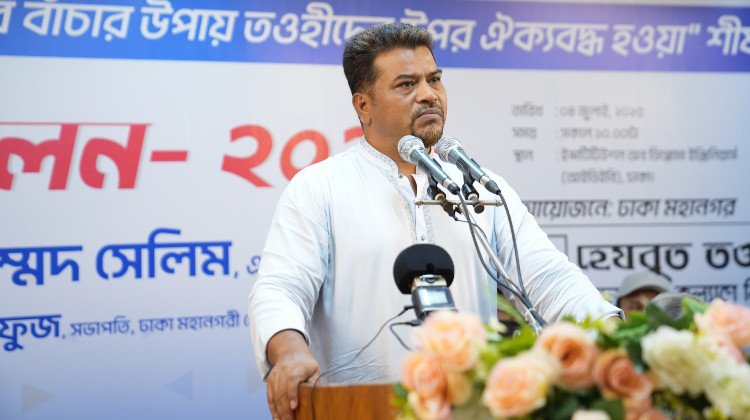







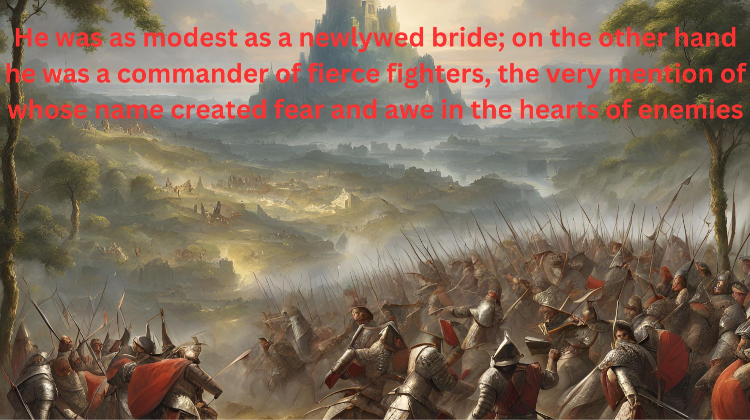



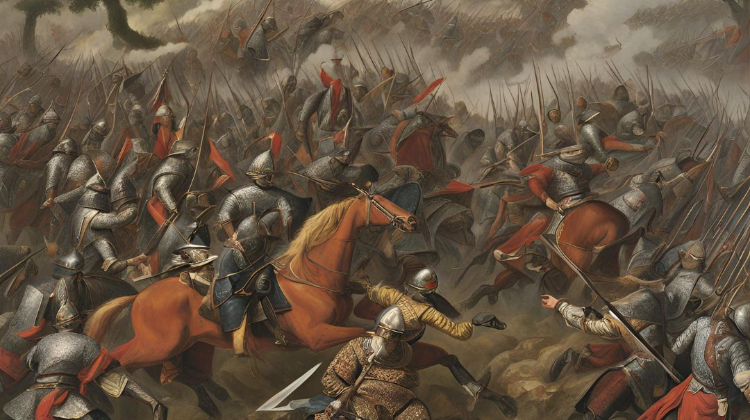
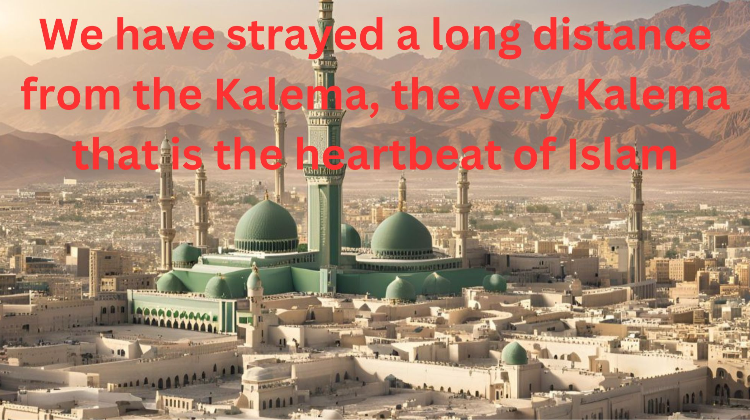
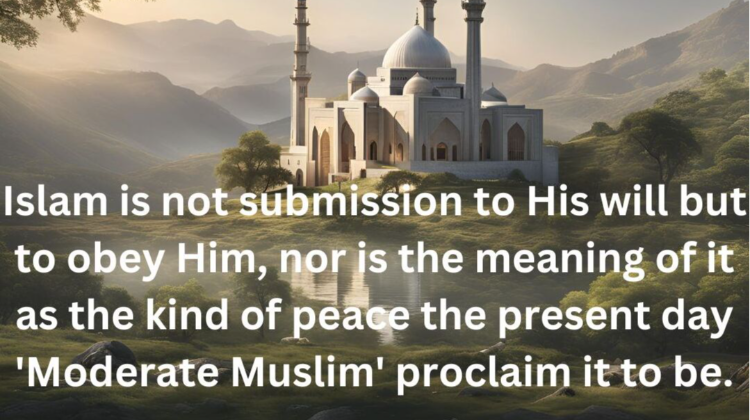

Leave a Comment